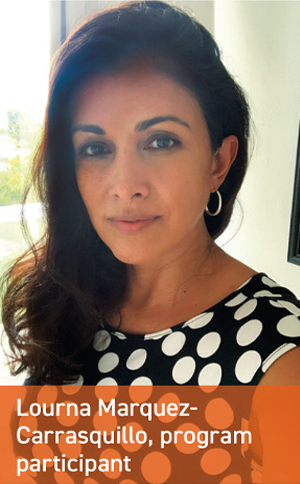
The National Cancer Institute (NCI) has awarded Sylvester Investigators more than $13 million for two major research studies delving into disparities known to occur among Hispanic cancer patients.
Cancer is the leading cause of death for U.S. Hispanics. Yet Hispanics are more likely than non-Hispanic whites to be diagnosed with cancer at advanced stages, wait longer for cancer diagnoses and treatments, and have poorer quality of life during and after cancer treatment.
To better understand and address these disparities, NCI awarded Sylvester investigators a six-year, $9.8 million grant for “Avanzando Caminos (Leading Pathways): The Hispanic/Latino Cancer Survivorship Study.” The study of about 3,000 cancer survivors will examine the potential influence of many factors on these patients’ health outcomes. “The opportunity to comprehensively assess multiple constructs among Hispanic cancer survivors who are diverse in regard to country of origin and geographic location in the U.S. will help us better understand how social, cultural, behavioral, psychosocial, biological, and medical factors impact cancer outcomes. This insight will help guide interventions that promote equitable and optimal wellbeing,” said the study’s lead principal investigator Frank J. Penedo, Ph.D., associate director of Cancer Survivorship and Translational Behavioral Sciences, director of Cancer Survivorship and Supportive Care and co-leader of the Cancer Control Research Program at Sylvester.

Lourna Marquez-Carrasquillo saw the value in participating in the Avanzando Caminos study. “This study acknowledges that there are improvements that can be made to optimize patient communication, and some of it has to do with language and culture. It’s important that the health care provider takes these factors into account, and perhaps a little bit of tailoring or tweaking can make that health care plan more meaningful and successful,” Marquez-Carrasquillo said.
Participating has helped Marquez-Carrasquillo better navigate as a cancer survivor.
“The study has helped me better phrase and point out things that did not happen and perhaps would have helped streamline my care,” she said. NCI also awarded $3.5 million for the five-year Encuentros study to evaluate the effects of a 10-week, group-based, linguistically translated and culturally adapted cognitive-behavioral stress and self-management intervention to help Hispanic men treated for localized prostate cancer with symptom burden and health-related quality of life.
"While about 76% of prostate cancersin Hispanic males are diagnosed at anearly stage, Hispanic prostate cancersurvivors are more likely than other ethnic groups to report lower physical and social functioning, poorer emotional well-being and greater sexual and urinary dysfunction during and after cancer treatment,” Dr. Penedo said. “Findings from this study may help guide future interventions that are culturally tailored and address the inequitable burden of cancer in Hispanics.”